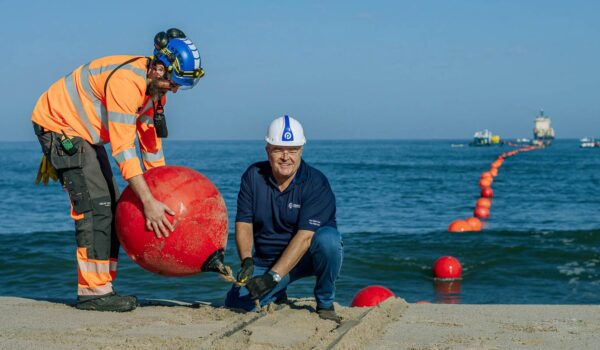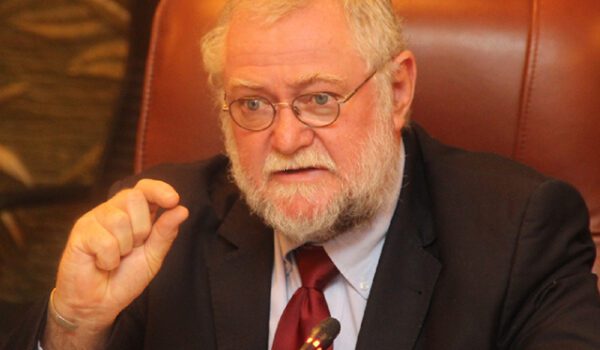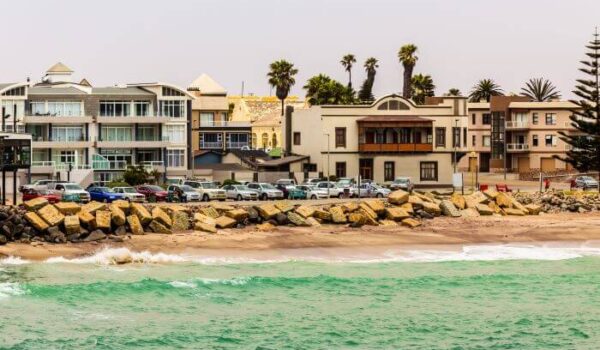 Former fisheries minister Bernard Esau said he found Fishcor on the verge of collapse when the new board of directors headed by James Hatuikulipi was appointed in 2014.
Former fisheries minister Bernard Esau said he found Fishcor on the verge of collapse when the new board of directors headed by James Hatuikulipi was appointed in 2014.
Esau is seeking bail from the Windhoek Magistrate’s Court and has offered assets valued at N$23m and N$50 000 cash.
He is currently in the Windhoek Correctional Facility together with former justice minister Sacky Shanghala, his son-in-law Tamson Hatuikulipi, Ricardo Gustavo, James Hatuikulipi and Mike Nghipunya.
Testifying in the court during the ongoing bail application, Esau said there simply was no activity at the factory and all staff members with the exception of essential staff members and a few management members were on-site at Fishcor’s factory.
“What I found upon holding office in 2010 was that the hake fishing quota as 22 allocated was outsourced to Merlus Seafood Processors (Pty) Ltd in Walvis Bay,” he said.
Esau said the rest of the personnel were staying home and were paid only half of their salaries on a monthly basis.
The former minister also said jobs were being exported from Luderitz to Walvis Bay thereby defeating the ministry and government’s purpose to maintain and secure jobs and economic activities in the town of Lüderitz in the //Karas
Region.
“This matter was brought to my attention by the inhabitants of Lüderitz town which had become a marginalised community with the loss of both fishing and rough/uncut diamond economic activities,” Esau, who has been in prison since November 2019 said.
He further said that Fishcor by virtue of its constituent Act (Section 5 of the Fishcor Act) automatically enjoys fishing rights to exploit marine resources.
These rights, he said, were not repealed during the amendment of the Act during his tenure of office as Minister of Fisheries and Marine Resources.
“Prior to my assignment or deployment as Minister of Fisheries and Marine Resources, Fishcor was allowed fishing quotas of hake, monk and rock lobster to catch and process at the town of Lüderitz.
“The decision of the MFMR to allocate fishing quotas to the corporation for catching and processing in Lüderitz was noble and very progressive for the benefit of the town of Lüderitz,” he said.
According to Esau, in terms of corporate governance, he discerned that no annual general meetings of Fishcor had been held during his first term of office as Minister of Fisheries and Marine Resources.
He also said his office received various reports that the corporation was remotely managed from Walvis Bay and immovable properties were being sold without proper management authorisation.
Although the allegations were discovered to be untrue, Esau said they caught his attention and was determined to turn Fishcor into a profitable State-Owned Enterprise.
“Employer-employee relations at Fishcor were reported to my office as being at a despicable level with workers being treated with contempt and disrespect,” he said.
According to Esau, a new board of directors heard by James Hatuikulipi was appointed and approved by the Cabinet in 2014 and the ministry asked Mike Nghiounya to lead the corporation.
Nghiounya was an economist in the fisheries ministry at the time of his secondment to Fishcor.
The other thing was that Fishcor negotiated with various financial institutions to save Fishcor from insolvency and foreclosure with a consequent loss of employment for all employees.
“The appointment of the new board of directors and a clear mandate to return the allocated fishing quotas to Lüderitz was carried out as directed from my office through the annual general meetings of the corporation.
“This proper corporate governance became the culture and norm of relations with my office as Minister of Fisheries and Marine Resources. I, at no stage, micro-managed or managed Fishcor as it appeared to be a healthy State-Owned Enterprise managed soundly through its management and Board of Directors,” Esau said.
Esau also said with the new board of directors under the chairperson of James Hatuikulipi, all corporate governance documents and performance agreements were put in place.
All the staff members, he said, including the staff members who were paid half salaries were returned to the factory site and additional staff was also recruited in the town of Lüderitz by Fishcor.
.









Comments